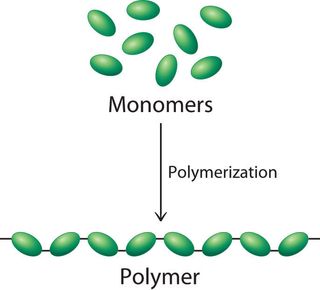Discovering the Varied Applications and Advantages of Polymers in Different Industries
Polymers, with their varied array of residential or commercial properties and performances, have actually come to be important in various sectors, each reaping one-of-a-kind benefits from their application. From enhancing security and efficiency in the automobile industry to revolutionizing clinical devices in the medical care sector, polymers play a critical role.
Automotive Field Applications
Polymers play a pivotal duty in enhancing the efficiency and sturdiness of various elements within the auto industry. These functional materials are extensively made use of in the manufacturing of different components, ranging from interior parts to under-the-hood applications. One popular use polymers in the automotive market remains in the manufacturing of lightweight elements. By changing typical metal get rid of polymer-based choices, cars can accomplish better fuel effectiveness without endangering on toughness or safety.

Health Care Sector Benefits
In various health care applications, the benefits of making use of polymers are commonly acknowledged for their diverse series of beneficial properties. Polymers play an essential role in the healthcare industry as a result of their versatility, biocompatibility, and cost-effectiveness. One of the main benefits of polymers in healthcare is their ability to be tailored to particular demands, such as versatility, longevity, and biodegradability, making them excellent for a wide array of clinical applications.
Polymer-based products are extensively used in clinical tools, such as catheters, implants, prosthetics, and medication shipment systems, due to their biocompatibility and ability to resemble all-natural tissues. These materials can lower the threat of allergic reactions or denials, boosting client safety and end results. In addition, polymers are lightweight, making them suitable for wearable clinical devices and ensuring person comfort.
Furthermore, polymers allow the development of ingenious therapy techniques, such as hydrogels for cells engineering and nanocomposites for targeted medication delivery. Their simplicity of handling and sterilization makes them vital for maintaining high requirements of health in healthcare settings. On the whole, the diverse advantages of polymers add considerably to improvements in clinical technology and individual treatment.
Environmental Benefits of Polymers

Moreover, polymers can add to energy savings because of their light-weight nature. In sectors such as transportation, lightweight polymer products can help in reducing gas intake and greenhouse gas emissions. Additionally, polymers can allow the advancement of energy-efficient items such as insulation materials that improve energy conservation in structures.
Moreover, polymers play a vital function in minimizing water contamination. For instance, the usage of polymer-based filtering systems can successfully eliminate contaminants and contaminants from wastewater, safeguarding water resources and ecosystems. On the whole, the ecological benefits of polymers make them important assets in advertising sustainability and environmentally friendly practices throughout different markets.
Polymers in Electronics and Modern Technology
Taking into consideration the boosting demand for innovative and lasting click here for more options in modern sectors, the combination of advanced polymer modern technologies in the world of electronics and technology has actually emerged as a pivotal approach for driving performance and performance. Polymers have changed the electronics industry by making it possible for the manufacturing of lighter, much more flexible, and sturdy digital devices. From smart devices to medical devices, polymers play a crucial role in improving product style and functionality.
One considerable benefit of polymers in electronics is their shielding properties, which assist protect fragile digital parts from environmental variables and electrical interference. In addition, polymers are vital in the growth of flexible screens, wearable modern technology, and printed electronics, using endless possibilities for producing clever and interconnected devices.
Additionally, making use of polymers in electronic packaging has actually brought about developments in miniaturization and thermal administration, boosting the overall performance and dependability of digital systems. As modern technology remains to develop, the convenience and adaptability of polymers will definitely drive further development in the electronic devices sector, shaping the future of technology.
Function of Polymers in Construction and Infrastructure
The combination of sophisticated polymer materials in building and facilities jobs has reinvented the method structures are developed and constructed in contemporary times. Polymers provide various advantages in the construction industry due to their versatility, sturdiness, and cost-effectiveness. One essential function of polymers in construction is their use in coatings and sealers, giving security against environmental factors such as dampness, UV radiation, and deterioration. Furthermore, polymers are used in the manufacturing of lightweight and high-strength composite products, boosting the architectural integrity of buildings while lowering total weight.
Furthermore, polymers play an essential duty in lasting basics building methods by allowing the advancement of energy-efficient structures. Protecting products made from polymers aid manage indoor temperature levels, minimizing the requirement for home heating and cooling down systems and ultimately lowering energy intake. In addition, the use of polymer-based composites in facilities tasks such as bridges and roadways enhances their durability and minimizes upkeep prices. Generally, the unification of polymers in building and framework showcases their significant influence on modern engineering methods.
Conclusion
To conclude, polymers play a vital duty in numerous sectors such as auto, healthcare, environmental, electronics, and construction. Their versatile residential or commercial properties make them important in producing ingenious services and products. From enhancing fuel effectiveness in cars to improving medical gadgets, polymers provide browse around here many benefits. Furthermore, their effect on minimizing waste and advertising sustainability highlights their relevance in modern applications. The prevalent usage of polymers shows their substantial payment to progressing modern technology and boosting lifestyle.